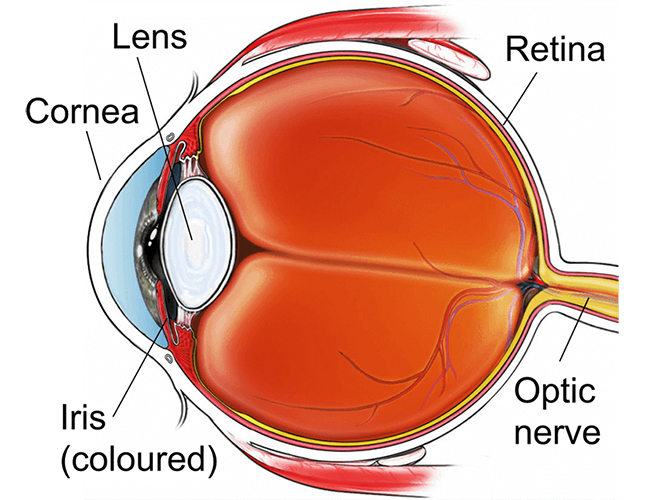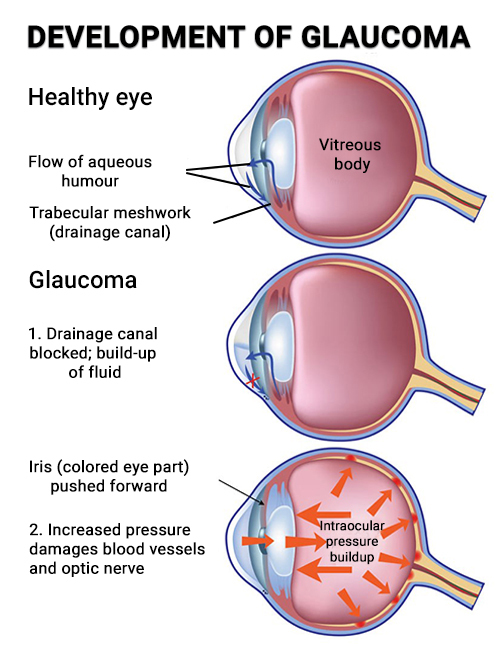 (212) 861-9797
(212) 861-9797
 (212) 861-9797
(212) 861-9797
Glaucoma is a progressive disease that eventually robs you of your sight. The disease damages your optic nerve, which carries signals from your retina to your brain. Glaucoma most often is caused by abnormally high pressure inside your eye. Medical treatment, like glaucoma surgery, relieves the pressure in your eye and takes preventative measures to keep the pressure from building again. Laser treatment for glaucoma is common, and when you have the procedure done by the best glaucoma specialists at Vitreous Retina Macula Consultants of New York, you get the best results. Call the top eye surgeons specializing in glaucoma at VRMNY today.
Glaucoma is an eye disease that damages the optic nerve in your eye. The optic nerve enables your vision, as it carries sensory nerve impulses from the retina, which collects the focused light, to your brain. Damage to the optic nerve most often occurs when you have abnormally high pressure within your eye.
Anything that blocks the flow of fluid in your eye can increase the pressure, leading to glaucoma. This eye condition threatens your sight in the affected eye. Glaucoma can also cause symptoms such as:
If you notice any of the signs of glaucoma, consult a glaucoma specialist for an early diagnosis. The renowned eye specialists at Vitreous Retina Macula Consultants of New York (VRMNY) rely on diagnostic imaging to find the evidence to make a definitive glaucoma diagnosis. The eye practice, with three locations in New York City, has specialized, state-of-the-art equipment to protect your vision.

Dr. Engelbert has gone above and beyond every appointment! The most thorough and well educated eye Dr. I’ve seen out of many… Very patient and answers all questions for the best plan of care. Thank you!
DAVID R. GoogleWhile glaucoma surgery is a life-changing eye procedure, it’s not for everyone. Your eye doctor first carries out tests to determine the underlying cause of your vision problem. After a glaucoma diagnosis, your ophthalmologist takes into account other considerations before determining the best glaucoma cure for you.
You’re a good candidate for glaucoma surgery if:
Your doctor can select from a range of glaucoma surgery procedures to find the most appropriate one for your condition. But they’re all complex eye procedures that require a glaucoma specialist like the ones you find at VRMNY. Visit the nearest office in Manhattan, Brooklyn or Westchester.
Glaucoma surgery is a more aggressive treatment for glaucoma that hasn’t responded to other treatments. The best-in-class glaucoma doctors use different surgical procedures to suit your type of glaucoma and protect your vision.
The most common glaucoma surgeries include:
After a glaucoma diagnosis, your glaucoma eye specialist may opt for conservative treatments, including eye drops, oral medication or laser surgical treatments. If these don’t work, a top eye specialist like those at VRMNY may decide you need glaucoma surgery. These ophthalmologist specializing in glaucoma use advanced techniques and the latest medical equipment to perform their eye treatments.

Because there are so many different types of treatment for your glaucoma, your ophthalmologist must determine the best approach. Glaucoma doctors choose the most suitable treatment based on your particular diagnosis, but the main steps of the surgery include:
If you are looking for glaucoma treatment in NYC or have questions about the problems with your vision, contact the VRMNY eye specialists. With locations in Manhattan, Brooklyn and Westchester, you can schedule a convenient appointment. These glaucoma specialists have the skills and technology to perform the most complex eye procedures and are considered by others among the top experts in trabeculectomy glaucoma surgery in New York.
Let us help you enjoy your life
Call: (212) 861-9797To Speak With An Appointment Coordinator Now